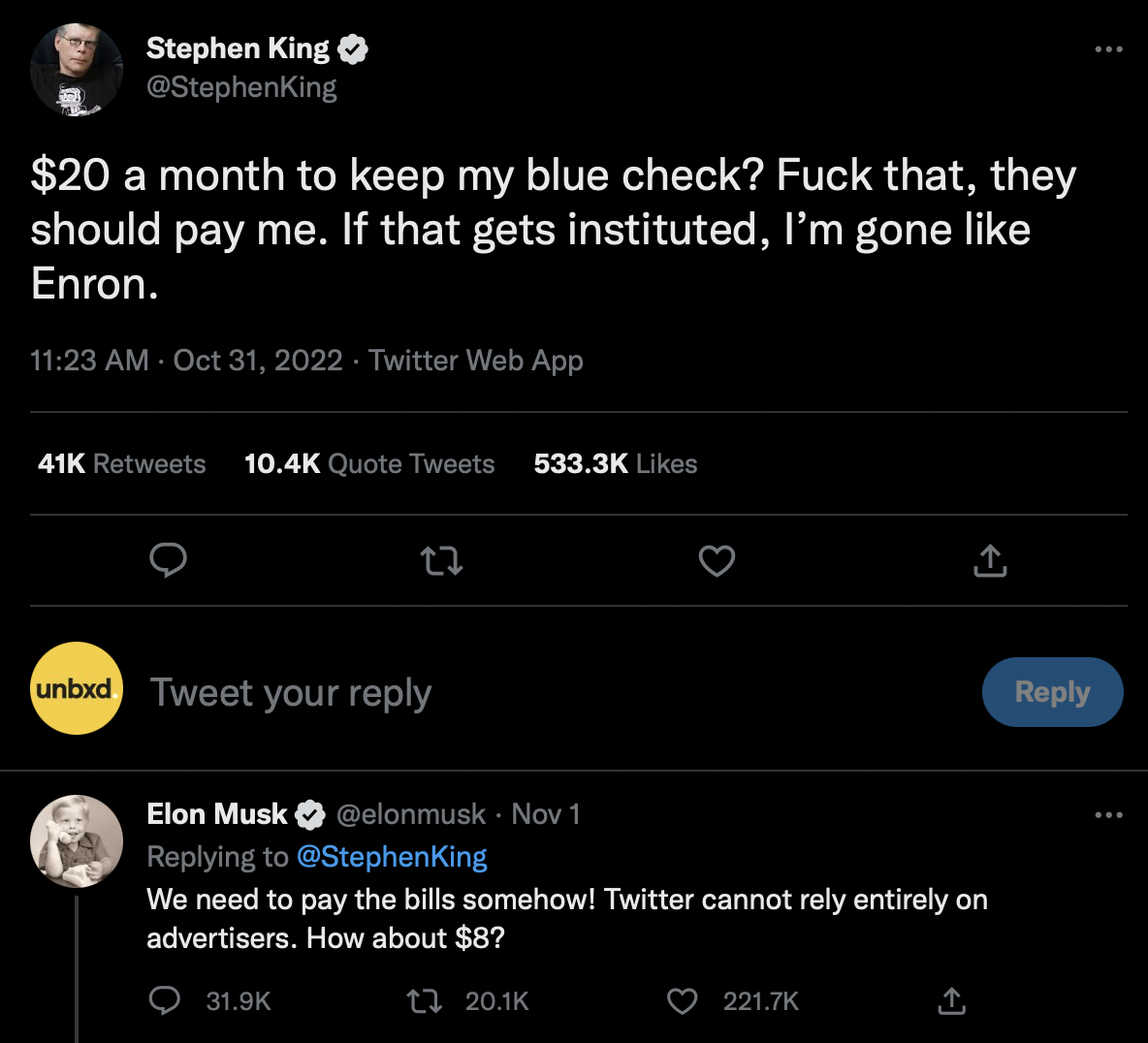The Twitter Meltdown: Should you stop advertising your business on Twitter?
Image Credit: The Verge
If you haven't been keeping up with all the news around Twitter, we don't blame you; it's a lot to take in. In the last two weeks alone, the company has descended into chaos.
Half the staff who worked for Twitter 7 days ago have been let go (he is now trying to get them back), the company has been removed from the stock exchange, users (including celebrities) are leaving the platform in droves, and some of the largest companies in the world, including Nestle, Sony and General Motors are halting all paid adverts on the platform.
Two people pretending to be fired employees (Learn more about this strange story)
How did we get here?
In early 2022 Elon Musk (Space X, Tesla) decided to purchase the platform. While he is known as the wealthiest man alive, it's important to state that he doesn't have 44 Billion to spend on buying Twitter; he borrowed over half of this money from banks and governments to raise the capital for the purchase. In summer 2022, he realised this would be a terrible idea (it is) and tried to back out. However, Twitter shareholders decided to take him to court (the Court of Chancery) to force him to finalise the transaction legally. It's now November 8th 2022, and Elon Musk has been CEO for less than three weeks.
It's difficult to pinpoint precisely why this has happened, but we can state a few things causing such disruption so quickly. First, Elon (like many others) is addicted to Twitter, it's the only social network he uses himself frequently, and unlike most others, when he doesn't like something, he can afford to buy it and shape it as he wishes. Second, Elon believes that 'alternative facts' exist and that there are no guiding principles to authenticate a statement as factual. Third, Twitter is a failing platform. It had never made money; last year alone, it generated $5 Billion in revenue but still lost over $221 Million.
To complete this transaction, Elon has to pay back $1 Billion annually in interest. Considering how little money Twitter makes, trying to make it profitable on this scale would seem almost impossible.
Stephen King takes Elon to task
The Verification Issue
Users and advertisers are fleeing the platform due to a new paid tier called Twitter Blue. While Twitter Blue has been around for 12 months, Elon Musk is changing what the subscription offers, allowing anyone to pay $8 per month to become verified. While mass verification seems like a good idea, the issue is that users are trained to see Twitter verification as a trusted source of information. Now anyone with the money to subscribe can verify their tweets and thus make it appear what they tweet is news/factual. While Elon has promised to include a badge on profiles that are currently verified, such as musicians or politicians, the issue remains that any verified journalists will lose their status if they don't pay.
Since Elon took over, he has fired entire departments dedicated to fact-checking and platform safety. He tweeted false information about a US politician and then swiftly deleted it, proving how easy it is. We have also seen a steep rise in hate speech since he took over. On Monday, 6th November 2022, a verified account changed its name to ‘Super Mario’ and tweeted a racially insensitive comment. As of 48 hours later, this tweet is still up. As you can imagine, brands are not happy that anyone can now pose as them and tweet whatever they like.
What’s next?
This is an evolving situation, but we are disappointed at the direction the company is taking with content moderation. While every platform has an issue with hate speech and false information, you can actively see Meta and TikTok trying to remove it and fix moderation failures of the past. Twitter displays no intent to do this and actively encourages it on the platform.
The question is, as a business do you want the brand association with an organisation and person willing to amplify hate speech. As most brand managers will tell you, associating with these figures and platforms will negatively impact your business and make customers feel less attracted to your brand.
We recommend focusing on other social media platforms, and if you are not ready to leave Twitter, continue posting organic content and move ad spend to alternative options.
It's an interesting position Twitter is in, and we will be sure to keep you updated with news that could impact your business's Digital Marketing Strategy.





